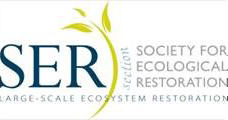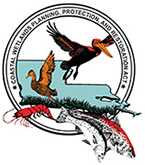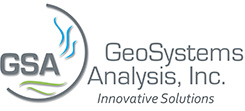|
First Name
|
Last Name
|
Organization
|
Abstract Title
|
PDF |
|
George
|
Athanasakes
|
Stantec Consulting Services Inc.
|
Katy Prairie Stream Restoration: An Illustrative Use of Stream Restoration to Create Resilient Ecosystems
|
|
|
Alice
|
Bailey
|
Environmental Consulting & Technology, Inc.
|
Oxbow Restoration: Re-establishment of Habitat and Recreation on the Rouge River
|
|
|
Larry
|
Beggs
|
Reef Ball Foundation
|
Best Practices Using Reef Balls for Living Shorelines
|
|
|
Sinéad
|
Borchert
|
Coastal Wetlands Planning, Protection, and Restoration Act (CWPPRA)
|
Coastal Wetland Migration with Sea-Level Rise: Quantifying the Potential for Landward Movement and Coastal Squeeze in Northern Gulf of Mexico Estuaries
|
|
|
Sinéad
|
Borchert
|
Coastal Wetlands Planning, Protection, and Restoration Act (CWPPRA)
|
CRMS in the Classroom: Ecosystem Monitoring Data in Phenomenon-Based Inquiry
|
|
|
Mark
|
Brown
|
USDA Forest Service
|
Florida’s Longleaf Pine Ecosystem, Evaluating a Half Century of Change and ts Recovery Status
|
|
|
Joe
|
Callaghan
|
GeoEngineers, Inc.
|
Upper Clear Creek Wetland Mitigation and Fish Conservation Bank Development
|
|
|
Katherine
|
Carbajal
|
Texas A&M University
|
Simulated Population Trends of Florida Manatee Under Anthropogenic and
Catastrophic Events
|
|
|
Brandon
|
Carr
|
USDA
|
The Role of the USDA-NRCS Plant Materials Program in
Ecosystem Restoration
|
|
|
Andre
|
Daniels
|
USGS
|
Faunal Monitoring in Response to Harbor Dredging in the Port of Miami and North Biscayne Bay
|
|
|
Abram
|
DaSilva
|
NOAA - National Weather Service
|
National Weather Service Support for Ecological Restoration in
the Ohio Valley and Lake Erie Drainage Basin
|
|
|
Theodore
|
DeWitt
|
US EPA
|
Using Geospatial Habitat Suitability Models to Prioritize Estuarine Areas for Conservation or Restoration of Bivalve Shellfish Beds
|
|
|
Michael
|
Eggleston
|
USGS
|
Phosphorus Retention Varies with Seiche Activity Among Great Lakes Coastal Wetlands
|
|
|
Rebekah
|
Gibble
|
USFWS
|
Lygodium Microphyllum in the Northern Everglades: Expansion, Control, And Impacts
|
|
|
Alonso
|
Gonzalez Cabello
|
AECOM
|
Power Line Habitat Restoration Program – A Success Story
|
|
|
Hunter
|
Guidry
|
Coastal Environments, Inc.
|
Reefblk Tm – Oyster Reef Bioengineering, Mad Island Preserve, Texas: A Case Study
|
|
|
Todd
|
Guidry
|
The Dow Chemical Company
|
Innovative Water Restoration Improvement Opportunities Through Engagement with
the Public, Private, And Non-
Profit Sectors
|
|
|
Brittany
|
Hall-Scharf
|
University of Florida
|
Changing the Local Scenery by Restoring Hernando’s Coast
|
|
|
Christopher
|
Hathcock
|
U.S. Fish and Wildlife Service
|
Effect of Water Depth on Germination and Growth of Federally Endangered
Texas Wild Rice
|
|
|
Samantha
|
Heldman
|
Texas A&M University
|
Plant Invasion Across Space
And Time: Chinese Tallow
Range Expansion In Southeast United States
|
|
|
Raymond
|
Hinkle
|
AECOM
|
Assessment of Treatments and Long Term Success In Restoring Common Reed (Phragmites Australis) Dominated Marshes On Delaware Bay, 1996-2017
|
|
|
Raymond
|
Hinkle
|
AECOM
|
Combining Cultural/Recreational Benefits with Ecosystem Restoration – The Delaware Branch Canal Trail Project
|
|
|
Tonya
|
Howington
|
Everglades National Park
|
Everglades Restoration and The South Florida Natural Resource Center: The Science Division of Everglades National Park
|
|
|
Madeline
|
Jones
|
Texas A&M University
|
A Stage-Structured Population Model for Deepwater Horizon Oil Spill: Potential Impacts Of Deepwater Horizon Oil Spill Event
|
|
|
Colleen
|
Kroe
|
King County
|
Decreases of Carbon and Nitrogen in the Soils of a 20-Year Chronosequence of Restored Wetlands, Washington State, USA
|
|
|
Kristopher
|
Kusnerik
|
Florida Museum of Natural History
|
Tracking Changes in the Historical Ecology of Florida’s Freshwater Springs and Rivers Using Recent and Fossil Mollusks
|
|
|
Kirsten
|
Lackstrom
|
Carolinas Integrated Sciences & Assessments (CISA)
|
Climate-Smart Conservation:
An Assessment of State Wildlife Action Plans from the Southeastern United States
|
|
|
Bryan
|
Locher
|
University of Central Florida
|
The Recovery of Sediment Nutrients in Restored Oyster Reefs in the Indian River Lagoon, FL
|
|
|
Jen
|
Lyndall
|
Society for Ecological Restoration
|
SER Certification Program for Ecological Restoration Practitioners
|
|
|
Mickey
|
Marcus
|
SWCA Environmental Consultants
|
Riverbank Stabilization on the Connecticut River: Lessons Learned From 25 Years Of Restoration
|
|
|
Agnes
|
McLean
|
National Park Service
|
Informing Water Management Decisions In Large Scale
Restoration Programs: The Use of Ecological Models in the
Evaluation Of Project Plans
|
|
|
Anny Katherinne
|
Meneses Mosquera
|
Universidad Nacional Autónoma de México
|
Ecological Restoration In Yucatán: A Strategy for Implementation, Development and Monitoring of Restoration Process in a
Network of Priority Sites
|
|
|
Annie
|
Montgomery
|
Texas A&M University
|
Potential Effect of Morbillivirus Exposure Following the Deepwater Horizon Oil Spill on Bottlenose Dolphin Population
|
|
|
Peter
|
Murdoch
|
USGS
|
Defining Natural Infrastructure Performance and Tracking Resilience Change Over Time in Coastal Environments
|
|
|
John
|
Nyman
|
LSU Agricultural Center
|
How to Construct Estuarine Wetlands High Enough to Remain Vegetated for Decades Without Delaying Fish and Wildlife Functions
|
|
|
Aviva
|
Patel
|
Credit Valley Conservation
|
Linking Landscape Scale Conservation Planning to Effective Ecological Restoration
|
|
|
Jacob
|
Patus
|
University of Miami
|
Land Use Change And
Restoration Efforts to Minimize Coastal Pollution in Great
Exuma, The Bahamas
|
|
|
Leonard
|
Pearlstine
|
Everglades National Park
|
GAM Modeling of Alligator Nest Sighting as Affected by
Hydrologic, Habitat, Meteorological and Anthropogenic (Canals And Roads) Variables |
|
|
Miranda
|
Peterson
|
Texas A&M University
|
Plants On the Move: The Trend of Japanese Honeysuckle Invasion in Southeast United States
|
|
|
Patrick
|
Phillips
|
GreenVest, LLC
|
Innovative Design to Develop a Novel Ecosystem
|
|
|
Bill
|
Precht
|
Dial Cordy and Associates
|
Julia Tuttle Mitigation Site: If We Plant Them Will They Grow?
|
|
|
Shauna-kay
|
Rainford
|
The Pennsylvania State University
|
Paleoecological Assessment of the Origin and Development of Vernal Pools in Central Pennsylvania
|
|
|
Alisha
|
Renfro
|
National Wildlife Federation
|
Examination of Alternative Operation Regimes for Existing Freshwater Diversion and Siphon Structures in Louisiana, USA
|
|
|
Curt
|
Riche’
|
USDA-NRCS
|
Evaluation of Louisiana Ecotypes of Saltgrass for Selection and
Use in Salt Marshes of the
Coastal Zone of Louisiana
|
|
|
Dianne
|
Rosensweig
|
ESA
|
Cortez Commercial Fishing Village Uses Grassroot Efforts to Fund Large Scale Habitat Restoration
|
|
|
Timothy
|
Schauwecker
|
Mississippi State University
|
Hydraulic and Vegetative Modeling for the Restoration Design of
the Upper Reach of Catalpa
Creek, an Impaired Stream in Northeast Mississippi
|
|
|
Shelby
|
Servais
|
Florida International University
|
Effects of Increased Salinity on Microbial Processing of Carbon and Nutrients in Brackish and Freshwater Wetland Soils
|
|
|
Doug
|
Shields
|
CBEC Eco Engineering |
A Tool for Beaver Dam
Analogue Design
|
|
|
Eric
|
Sparks
|
Mississippi State University
|
Impacts of Large-Scale Breakwaters on Shoreline Vegetation in High Wave Energy Environments
|
|
|
Rachael
|
Stevenson
|
Nova Southeastern University
|
Faunal Monitoring in Response to Harbor Dredging
|
|
|
Eric
|
Swain
|
USGS
|
Using Water-Temperature Data to Determine Groundwater Seepage to the Indian River Lagoon, Florida
|
|
|
Sabrina
|
Tabassum-Tackett
|
University of Louisiana at Lafayette
|
Comparing Cadmium Tolerance in Unialgal and Assemblage Exposures to Assess Whether Single-Species Exposures Can Predict if Cadmium Contamination Favors Harmful Algal Blooms
|
|
|
Heather
|
Theel
|
US Army Engineer Research and Development Center (ERDC)
|
Decision Framework for Upland Hardwood and Grassland Restoration Monitoring: Integrating Innovative Spatial Technologies
|
|
|
Garret
|
Thomassie
|
USDA-NRCS
|
Native Plant Solutions for Coastal Restoration Along the Gulf Coast
|
|
|
Phillip
|
Todd
|
North State Environmental
|
Brunswick Town/ Fort Anderson –
A Living Shoreline Alternative
|
|
|
Jeffrey
|
Trulick
|
US Army Corps of Engineers
|
Risk Informed Decision Making in Aquatic Ecosystem Restoration Project Planning for the US Army Corps of Engineers
|
|
|
G. Lynn
|
Wingard
|
USGS
|
Impacts of Hurricane Irma on Florida Bay Islands – Clues to Future Responses to Storms and Sea Level
|
|
|
Von
|
Winkel
|
Southern Nevada Water Authority
|
Ecological Restoration at the
Warm Springs Natural Area in Moapa, Nevada
|
|
|
Robert
|
Ziehr
|
USDA
|
Ecosystem Restoration Tools
|
|









